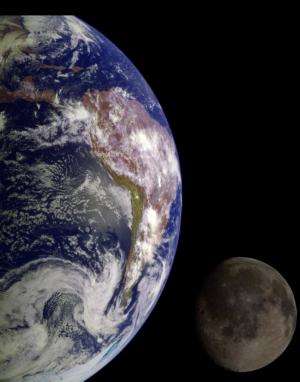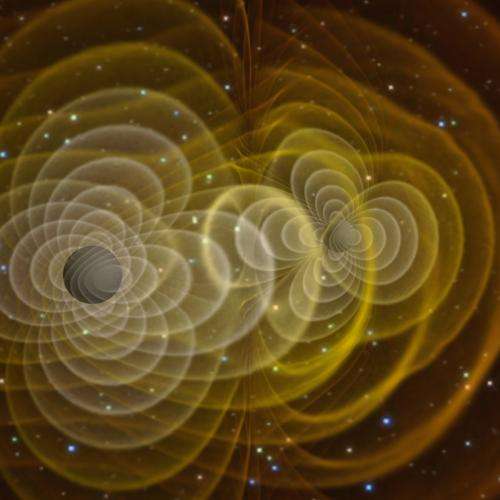Earth and Moon, seen from Galileo
It feels like you just can't get away from clingy gravity. Even separated by distances of hundreds of millions of light years, gravity is reaching out to all of us. Is there a place you could go to get away from gravity entirely?
Fortunately for our space intolerant tissues and terrible oxygen dependency withdrawal symptoms, gravity binds us to our sweet, cozy home with breathable air, the Earth. Its collective mass is trying to accelerate you towards its center, that way, at 9.8 meters per second squared. But the Earth isn't the only one looking to cuddle.
You're also being pulled at by the Moon, and if it weren't for the Earth here, that pull could hurl you far off into deep space, or crash you into its cold dusty surface. In fact, as the Moon passes overhead, you're being imperceptibly tugged upwards. This possessive tug o war isn't just between the moon, and the earth fighting over you like an older brother keeping a small doll out of reach a younger sibling.
The Sun is also in on this shenanigan. Gravity from there is pulling at you from a distance of 150 million km. Well, aren't we popular. So how far would you have to go to escape this gravitational custody battle completely?
Even At 2.5 million light years distance, gravity is still reaching out and being a clingy creeper. The Milky Way and Andromeda are pulling towards each other. The gravity between these two bodies is strong enough to overcome the expansion of the universe. Which will result in a galactic smash-up derby a few billion years from now.
There's no end to it. Gravity appears to be madly greedy and long armed. Members of the Virgo Super cluster are connected to each other, and they're dozens of millions of light-years apart. Objects in the Pisces-Cetus Super cluster complex are even connected to each other by our invisible and obnoxiously possessive friend. And they are hundreds of millions of light years apart…
In fact, you're so popular that you are gravitationally pulled towards even most distant object in the observable Universe. And they, in turn, are linked to you. As a result, without the outward expansion and acceleration of the Universe, everything would fall inward to a common center of gravity. Newton thought that gravity was instantaneous and if the Sun disappeared, the Earth would immediately fly away. Einstein realized that gravity is distortions of spacetime caused by mass. And as it turns out, gravity moves at the speed of light.
If the Sun disappeared, Earth would continue to follow the curved spacetime distortion for 8 whole minutes. Interactions between massive objects, like when black holes collide, cause ripples in spacetime called gravitational waves. As a gravitational wave passes through, you get warped in spacetime, like a wave in the water. The amount is so slight we've never seen them directly. However, the decay of pulsar orbits have shown them indirectly.
Artist’s impression of gravitational waves. Credit: NASA
The ground-based LIGO experiment might someday detect a gravitational wave, but there's been no luck so far. The Space-based LISA experiment should detect gravitational waves with more precision. The first version will launch in 2015, but the real experiment probably won't be operational until 2030.
Everybody wants a piece, and I don't know about you, I just want to be left alone. Gravity's is reach is amazingly far. It's everywhere, all the time, and it's having none of that. What do you think? If you had the power to remove yourself from Gravity's pull, what would you do? Tell us in the comments below.
Source: Universe Today

























